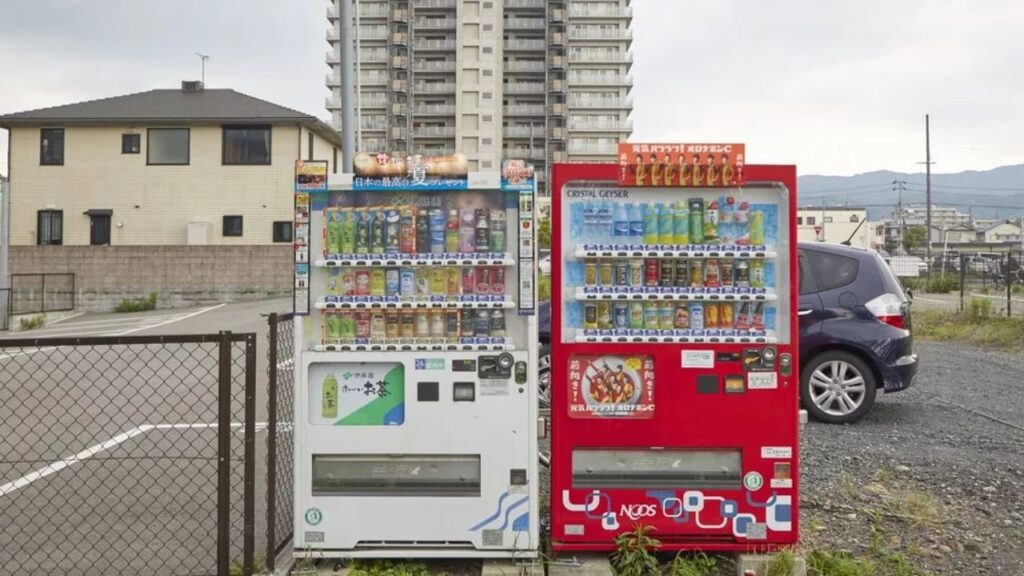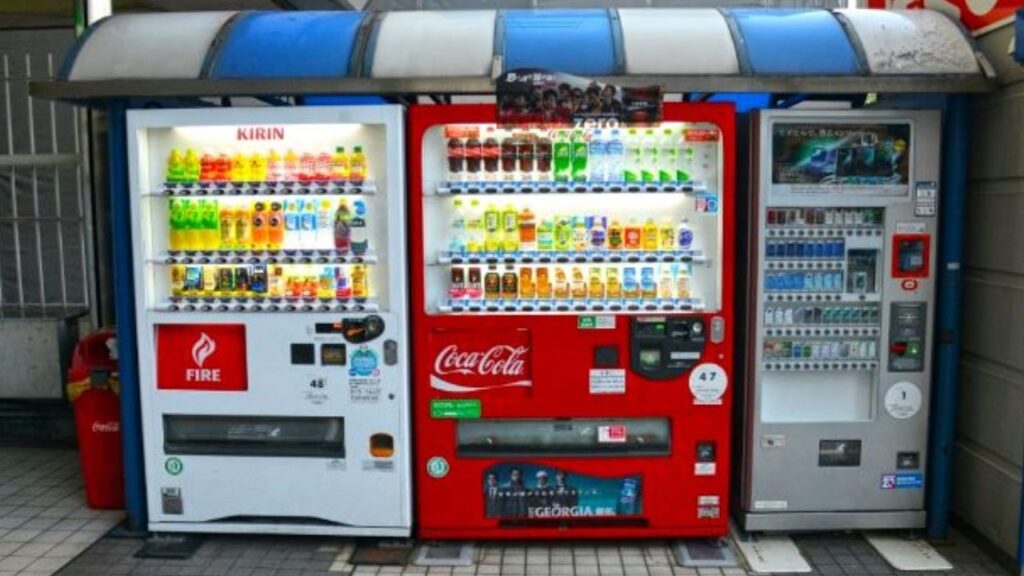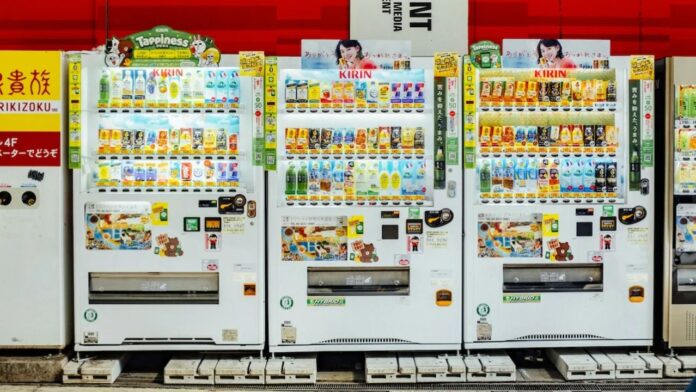Moving a vending machine involves several considerations, not least of which is the cost. The factors influencing these expenses are crucial for any business owner or operator looking to relocate their vending machine. Factors such as location, distance, accessibility, size, weight, and extra services also go toward the total price.
The geographical location can significantly impact transportation expenses, while the size and weight of the machine dictate labor and equipment needs. This article will explore how much it costs to move a vending machine, provide insights into the average cost breakdown, and offer tips on minimizing expenses. By delving into these details, businesses can make informed decisions regarding moving their vending machines, ensuring a smooth transition without breaking the bank.
The Costs of Moving a Vending Machine
The costs associated with moving a vending machine are essential for any business owner or operator considering relocation. From transportation fees to labor costs, various factors influence the overall expenses. Factors such as the machine’s size, weight, and distance to be traveled are crucial in determining the final cost.
Additionally, the accessibility of pickup and drop-off locations and the need for additional services like installation or storage can further impact expenses. By gaining insight into these cost components, businesses can better plan and budget for the relocation process. This article aims to comprehensively understand the costs of moving a vending machine, empowering businesses to properly manage expenses and enable a smooth transition through well-informed decision-making.

Factors Affecting the Cost of Moving
Several factors significantly influence the cost of moving a vending machine, making it essential for businesses to consider these elements carefully. The geographical location plays a crucial role, with urban areas often incurring higher transportation expenses due to traffic congestion and limited parking. Distance is another key factor, as longer journeys typically result in higher transportation fees.
Additionally, the accessibility of pickup and drop-off locations can impact costs, especially if they pose logistical challenges. The vending machine’s weight and size also greatly impact the total cost, as larger and heavier machines require a larger workforce and specialized equipment for safe transportation. Moreover, the need for additional services such as installation, dismantling, or storage can further add to the expenses. By understanding these factors, businesses can better anticipate and manage the costs of moving a vending machine, ensuring a smooth and cost-effective relocation process.
Calculating the Expense of Relocating
Calculating how much it costs to move a vending machine requires careful consideration. First, geographic location and travel distance are major factors in determining transportation costs, with urban areas and longer distances often causing higher costs. Second, the size and weight of vending machines significantly affect labor and equipment requirements, affecting overall costs.
In addition, accessibility to pickup and drop-off locations may affect delivery efficiency and may result in additional costs if special arrangements are required. This is crucial for any supplementary services, such as components required for installation, dismantling, or storage, as these can contribute substantially to the total cost. By carefully evaluating these factors, businesses can develop accurate cost estimates and budgets for relocating their vending machines, minimizing financial stress and ensuring a seamless transition.
Initial Considerations for Vending Machine Relocation Costs
When contemplating the relocation of a vending machine, several initial considerations can help estimate associated costs effectively. Firstly, assessing the distance between the current and intended locations is crucial, as transportation expenses typically increase with distance. Additionally, evaluating the accessibility of pickup and drop-off sites is essential, as challenging terrain or limited space may necessitate specialized equipment or extra labor, adding to expenses.
Moreover, considering the size and weight of the vending machine is paramount, as larger or heavier machines may require a larger workforce and specialized handling, impacting overall costs. Understanding these initial factors enables businesses to develop a clear picture of potential relocation expenses, facilitating informed decision-making and budgeting. By addressing these considerations early in the planning process, businesses can ensure a smoother relocation experience while minimizing unexpected costs and disruptions to operations.
Budgeting Tips for Moving Vending Machines
Budgeting to relocate vending machines requires careful planning and consideration of various factors to ensure financial efficiency. Firstly, businesses should obtain quotes from multiple moving companies to compare prices and services, allowing them to select the most cost-effective option. Additionally, relocation planning and scheduling during off-peak times can help secure better rates and availability.
It’s also advisable to assess the need for additional services such as installation, dismantling, or storage and budget for these accordingly. Moreover, exploring DIY options for certain aspects of the relocation process can help save on labor costs. Negotiating with moving companies for discounts or package deals is another effective strategy for reducing expenses. By implementing these budgeting tips and being proactive, businesses can streamline the vending machine relocation process while staying within their financial constraints.
Hidden Expenses in Vending Machine Relocation
While budgeting for vending machine relocation, it’s crucial to consider potential hidden expenses that may arise throughout the process. One such expense is the need for specialized equipment or an additional workforce to navigate challenging terrain or access restricted locations, which can incur unexpected costs. Moreover, unforeseen delays like traffic congestion or adverse weather conditions can incur additional labor charges or rental fees for extended equipment usage.
Businesses should also account for insurance coverage for the vending machine during transit, as well as any necessary permits or permissions required for relocation. Additionally, damages to the vending machine or surrounding property during transportation may lead to repair costs not initially accounted for. By recognizing these hidden expenses and factoring them into the budgeting process, businesses can ensure a smoother relocation experience and avoid financial surprises.

Regional Variances in Vending Machine Moving Costs
Regional variances significantly impact the costs of relocating vending machines, making it essential for businesses to consider these differences when budgeting. Transportation expenses are higher in densely populated urban areas with high traffic congestion and limited parking than in rural or suburban locations. Furthermore, labor expenses could change based on local wage rates.
Moreover, accessibility challenges such as narrow streets or steep inclines can necessitate specialized equipment or additional workforce, further increasing expenses. Local regulations and permit requirements may also differ, affecting administrative costs associated with the relocation process. By recognizing these regional variances and factoring them into the budgeting equation, businesses can develop more accurate cost estimates and make informed decisions when relocating vending machines, ensuring a smoother and more cost-effective transition.
Impact of Vending Machine Type on Moving Expenses
The type of vending machine significantly impacts moving expenses due to size, weight, and complexity variations. Standard vending machines, typically found in office buildings or public spaces, are generally easier and less costly to relocate compared to larger or specialized machines like refrigerated or combination units. Refrigerated vending machines, for instance, require additional care and equipment to ensure the safe transport of perishable goods, thus increasing labor and transportation costs.
Similarly, larger vending machines, such as those vending bulk items or large electronic devices, may require specialized handling and equipment, leading to higher expenses. Factors such as the number of vending machines being moved and their condition can also influence overall costs. By considering the type and characteristics of vending machines, businesses can better estimate moving expenses and make appropriate plans to guarantee a seamless and economical move procedure.
Transportation Costs for Moving Vending Machines
Transportation costs for moving vending machines are influenced by various factors, including distance, location, and the type of machine being transported. Longer distances typically result in higher transportation expenses due to fuel costs and time required for travel. Moreover, transportation costs can vary based on the geographical location, with urban areas often having higher rates due to traffic congestion and limited parking.
The size and weight of the vending machine also play a significant role, as larger or heavier machines may require specialized vehicles or equipment for safe transport, further increasing transportation costs. Additionally, factors such as accessibility at pickup and drop-off locations and the need for permits or escorts can impact transportation expenses. By carefully considering these factors and obtaining quotes from multiple moving companies, businesses can better estimate transportation costs and budget effectively for relocating their vending machines.
Labor Costs Involved in Moving Vending Machines
Labor costs involved in moving vending machines encompass various aspects, contributing significantly to the overall expenses. The complexity of the relocation process, including dismantling, loading, unloading, and reinstallation, determines the extent of labor required. Larger or heavier vending machines may necessitate additional workforce for safe handling and transportation. Moreover, accessibility challenges at pickup and drop-off locations, such as stairs or narrow corridors, can increase labor time and costs.
Specialized skills may also be required for handling specific types of vending machines, such as refrigerated units or those containing delicate components. Factors like overtime charges, union regulations, and prevailing wage rates in different regions can further impact labor costs. By carefully assessing labor requirements and obtaining quotes from experienced professionals, businesses can better estimate and budget for labor costs when relocating their vending machines.

Permit and Licensing Fees for Vending Machine Relocation
Permit and licensing fees are essential considerations when budgeting to relocate vending machines. Depending on the local regulations and ordinances, businesses may need permits to transport vending machines on public roads or through certain areas. These permits typically incur fees, which can vary based on factors such as the relocation duration and the vending machines’ size and weight.
Additionally, businesses may need to ensure they hold the necessary licenses or certifications to operate vending machines in the new location, which may involve application fees or renewal costs. Failure to comply with permit and licensing requirements can result in fines or legal repercussions, underscoring the importance of budgeting for these expenses. By proactively addressing permit and licensing needs and allocating funds accordingly, businesses can ensure a smooth and compliant relocation process for their vending machines.
Materials Needed for Vending Machine Transport
A detailed cost breakdown of materials needed for vending machine transport is crucial for accurate budgeting. Essential materials include sturdy straps or harnesses for securing the vending machine during transportation, ensuring it remains stable and undamaged. Additionally, protective padding or blankets help prevent scratches or dents during loading, unloading, and transit.
Specialized equipment such as dollies or hand trucks is indispensable for safely maneuvering heavy vending machines, reducing the risk of injury to movers and minimizing potential damage to the machine or surrounding property. Depending on the specific requirements of the relocation, additional materials like ramps or lift gates may be necessary for loading and unloading the vending machine from vehicles. By accounting for these materials in the cost breakdown, businesses can ensure a well-equipped and efficient moving process while minimizing the risk of damage to their valuable vending machines.
Preparing Vending Machines for Transportation
Additional Costs
Preparing vending machines for transportation incurs additional costs beyond basic relocation expenses. These costs primarily revolve around ensuring that the machines are properly secured and protected to prevent damage during transit. One significant expense is purchasing or renting specialized equipment such as pallet jacks, forklifts, or hydraulic lifts, which are essential for safely loading and unloading heavy vending machines onto vehicles.
Protective packaging materials such as foam padding, bubble wrap, or custom crates may also be necessary to safeguard delicate components and prevent scratches or dents during transport. Moreover, hiring professional technicians to dismantle and disconnect vending machines from their current location and reassemble and reconnect them at the new site entails labor costs that should be factored into the budget. By accounting for these additional expenses upfront, businesses can ensure a smooth and damage-free relocation process for their vending machines.
Conclusion
How much it costs to move a vending machine depends on several factors, including distance, location, size, and additional services required. Transportation, labor, permits, and preparation materials contribute to the overall cost. By carefully considering these factors and budgeting accordingly, businesses can ensure a smooth and cost-effective relocation process for their vending machines. Additionally, obtaining quotes and planning from multiple moving companies can minimize unexpected costs and ensure a seamless transition. Finally, investing in professional services and adequate preparation is essential to reducing transportation costs and protecting the vending machine’s integrity.
FAQ
How hard is it to move a vending machine?
You must hire a moving truck large enough for the task. A vending machine alone can weigh up to 900 pounds, so look for one that can weigh up to 1,500 pounds!
Do vending machine owners pay for locations?
The owner who supplies the space and electricity needed to run your machine will receive a commission from you. Generally, you should give the property owner between 5% and 25% of your vending machine’s earnings.
How much does it cost to make a vending machine?
You should budget between $3,000 to $5,000 for a new snack vending machine.
Do vending machines make a lot of profit?
Indeed, operating a vending machine business can be quite profitable. You may make $8,000 or more a year with just one machine. Within 18 months, you can receive a 100% ROI, regarded as a very good return on investment. For more than 20 years, we have been running our vending machines.
What Is the Success Rate of Vending Machines?
Vending machines have a success rate of more than 80% as a business. Starting a business with vending machines is a terrific idea for young entrepreneurs because of its minimal beginning costs and high success rate.

